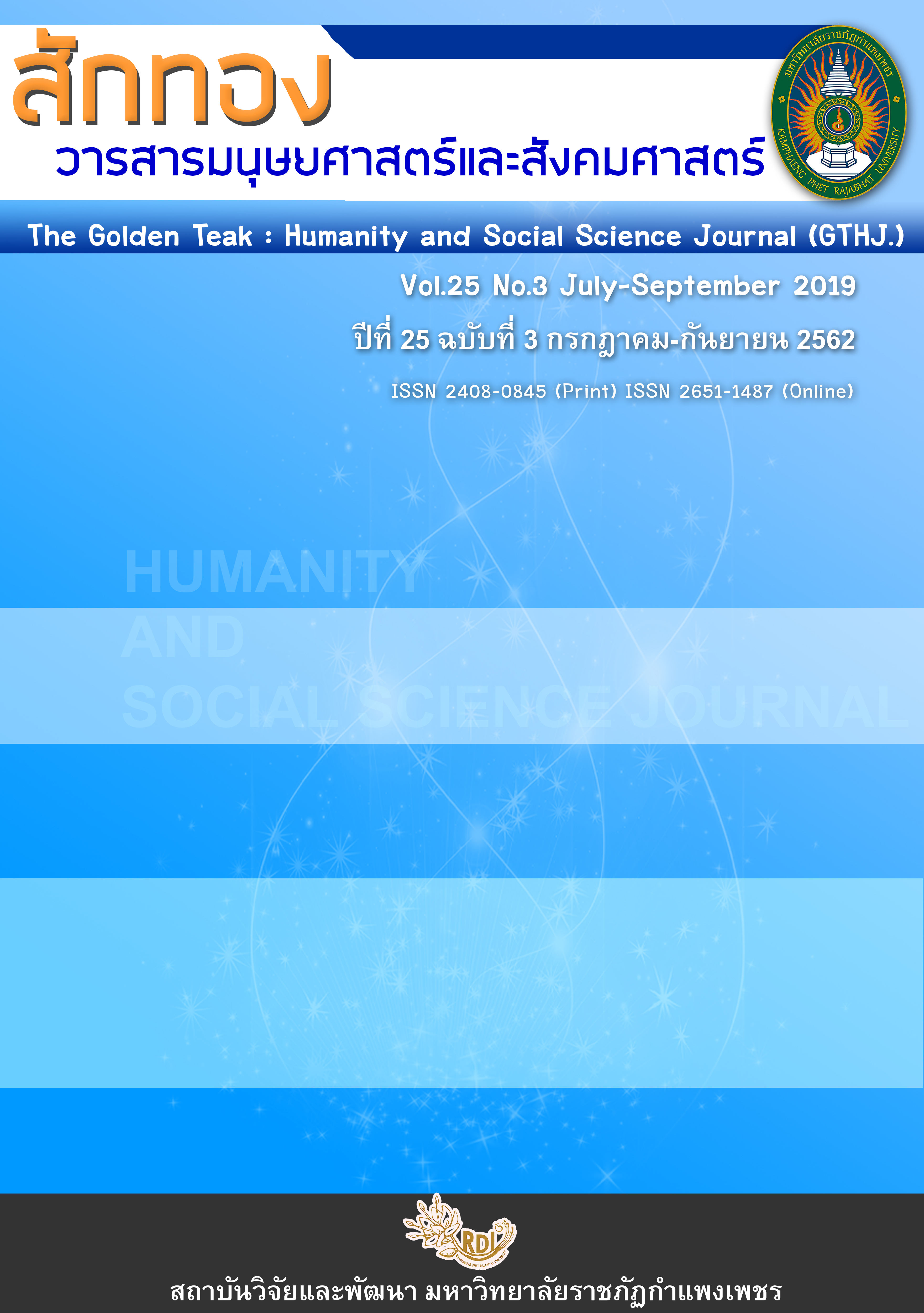Ecological Implications in an Early Regional Novel : A Case Study of Plae Khao by Mai Muang Derm
Main Article Content
Abstract
This article aimed to study the ecological implications appeared in the peasant novel, Plae Khao, written by Mai Muang Derm. Even though the novel did not present the ecological concepts directly, we could see the ecological implications that portrayed a relationship between humans and nature through characteristic of the main characters. The novel presented Khwan as one who lived the traditional life and had a strong bond with nature; Riam, as one who lived the modern life and was far away from nature. The ending showed that humans had to get back to nature in the end, just like the death of Khwan and Riam who died in their hometown canal. The novel showed that humans were unable to separate from nature no matter how hard they tried.
Article Details
บทความที่ได้รับการตีพิมพ์เป็นลิขสิทธิ์ของวารสาร สักทอง : วารสารมนุษยศาสตร์และสังคมศาสตร์ สถาบันวิจัยและพัฒนา มหาวิทยาลับราชภัฏกำแพงเพชร
ข้อคิดเห็นใดๆ ที่ปรากฎในวารสารเป็นวรรณกรรมของผู้เขียนโดยเฉพาะ ซึ่งมหาวิทยาลัยราชภัฏกำแพงเพชรและบรรณาธิการไม่จำเป็นต้องเห็นด้วย
References
Bunnag, P. (2007). Modern Thai History (from the Bowring treaty to the 14 October 1973 uprising). Bangkok : Faculty of Arts, Chulalongkorn University.
Environmental Quality Promotion, Department of. (1999). The promotion and Conservation of national Environmental Quality of Thailand. Bangkok :
Department of Environmental Quality Promotion.
Glotfelty, C. (1996). Introduction. In The ecocriticism reader : Landmarks in Literary ecology. Glotfelty, Cheryll & Fromm, Harold. (Eds.). pp. xv-xxxvii.
Athens : University of Georgia Press.
Jongjarernyingyong, K. (2006). Human Community and Economy. Chiangmai : Suthep Printing.
Khamkuna, S. (2016, September-December). Khampipaksa : Presentation Technique of Conflicts. The Golden Teak : Humanity and Social Science Journal (GTHJ.), 22(3), 70-80.
Mai Muang Derm. (1994). Plae Khao. Bangkok : Sermwit Bannakarn.
Phra Dhammapitaka (P.A. Payutto). (2000). Thai people and the forest. Bangkok : Department of Curriculum and Instruction Development.
Pinyomark, K. (2011). Nature in Thai Contemporary Poetry. Bangkok : Intanin.
Pradittatsanee, D. (2017). Environmental literature Criticism (Ecocriticrism) : Introduction. In Theories and Art Criticism Views of Thai Academics. Satchaphan, R. (Ed.). pp.236-327. Pathum Thani : Nakhon.
Satawetin, J. (1974). Literature Analysis. Bangkok : Sutthisarn Printing.
Sathirakoses. (1960). Thai Tradition. Bangkok : Thaharn Rueng Printing.
Sawangsri, T. (2011). The Characteristic in Regional Novels of Mai Mueng Derm. Master of Arts Thesis, Department of Thai and Oriental Languages, Faculty of Humanities, Srinakharinwirot University.
Warathorn, S. (1976). A History of Thai novel Writing from the Beginning to 1932. Bangkok : The Foundation for the Promotion of Social Sciences and Humanities Textbooks Project.


